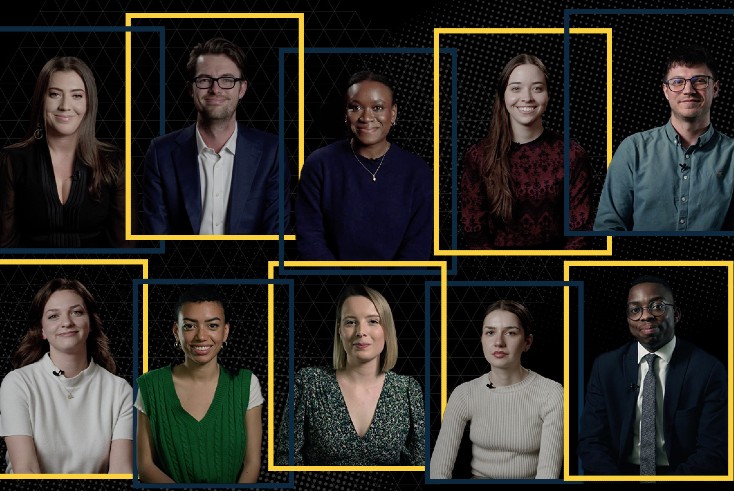What we can learn by going back to school

Opinion
We must inspire the younger generation to get into the media industry to make a real change and ensure a more diverse future.
We’re all lucky enough to work in this brilliant industry. An industry full of ideas, fun and creativity.
But if someone asked me at school if I wanted to work in media and advertising, I wouldn’t have really known what that meant. It sounds a bit abstract, doesn’t it? Exciting and glossy, perhaps, but what are the actual job roles? I would need something tangible to aim for.
And then what… how would you get into this world if you didn’t know anyone? How would you access work experience or a foot in?
Lots of companies are making strides to employ a broader and more diverse workforce. You don’t necessarily need a degree, for instance. There are lots of apprenticeship schemes, training and so on.
But I still wonder whether we’re doing enough. We talk a good game in this industry. It’s the job we’re in, communications, advertising, PR. But are we in danger of believing our own hype? Sure, we’re a diverse industry. There are loads of women. We are even talking about neurodiversity and menopause now. Winning.
But are we really? Appointing a D&I officer doesn’t quite cut it if they’re just a tick box exercise and not empowered to make real change. I recently heard from a friend in the industry who was given D&I responsibility but absolutely no time, backing or support from those up high. It’s shameful.
Do the stats add up?
If you look at the Advertising Association’s All In Census, nearly 90% of the advertising industry is white, and just 18% of respondents are ethnic minority compared to 38% of the London working population. Our stats are also lower than average when it comes to disability and class representation; 11% have a disability, compared to 14% of working population, and 20% are working class vs 40% of the population.
I guess the theory is that this will change as younger people come into the industry. If societal barriers are breaking down (hopefully!) and there is more awareness and acceptance of differences, surely the next generation will naturally be more diverse?
Currently 7% of our industry fall into the 16-24 bucket, with 41% in the 25-34 age group. The data reveals issues around people leaving the industry due to discrimination, both gender and race, but that’s a whole other talent crisis piece in the writing.
What I’d like to see is a bigger focus and drive on recruitment into the industry. We’re in the business of people, after all, and spend our time trying to reach them, engage, influence, get them to read, watch and buy. If we’re not a representative industry, how are we best able to do that?
If you don’t see it, you won’t seek it
Going back to my earlier point, inspiring school children to join the industry is a good start. After all, if you don’t see it, you won’t seek it.
Brixton Finishing School is doing a great job here. And it’s needed. In my school in Lewisham, the careers advice stretched to “do you want to be a doctor, teacher, plumber, or hairdresser?” Passion wasn’t on the agenda, and no-one thought to tell you to consider your inherent skills and genuine interests.
Once we’ve attracted people in, we then need to look after and nurture them. Let them be themselves, train them, invest in them, ensure they aren’t being discriminated against, so we can hold on to them and harness their new perspective, fresh ideas, energy and creativity.
A different future
At Newsworks, we’ve been considering what the future of news looks like by speaking to young journalists in the industry. In our Future of News series, we ask publishers’ rising stars what inspired them to be a journalist, their proudest moment and their perspective on the newsrooms of the future.
We’ve been thoroughly entertained and inspired, hearing about everything from political scandals and behind the scenes at Westminster, strange stories including recreating Nigella’s famous toast, and why they believe there will be a push back to quality content (you can watch the latest series highlights film here).
But more than that, we’ve learned a lot about how younger people view the industry, the changes they want to see and their hopes for the future. I’m proud that these journalists feature in Adwanted’s Future 100 Club.
They’ve inspired us to make big plans for next year, including presenting to schools, creating a specific youth hub, teaming up with partners such as Brixton Finishing School’s ADventure, Adwanted’s Future 100 Club, the Student Publication Association’s Awards, and more on the horizon. Things that will hopefully make a difference and will educate and inspire more young people into journalism and media, to ensure a better and more diverse future.
It’s not enough, but it’s a start.
Liz Jaques is Newsworks’ trade marketing and PR director.




